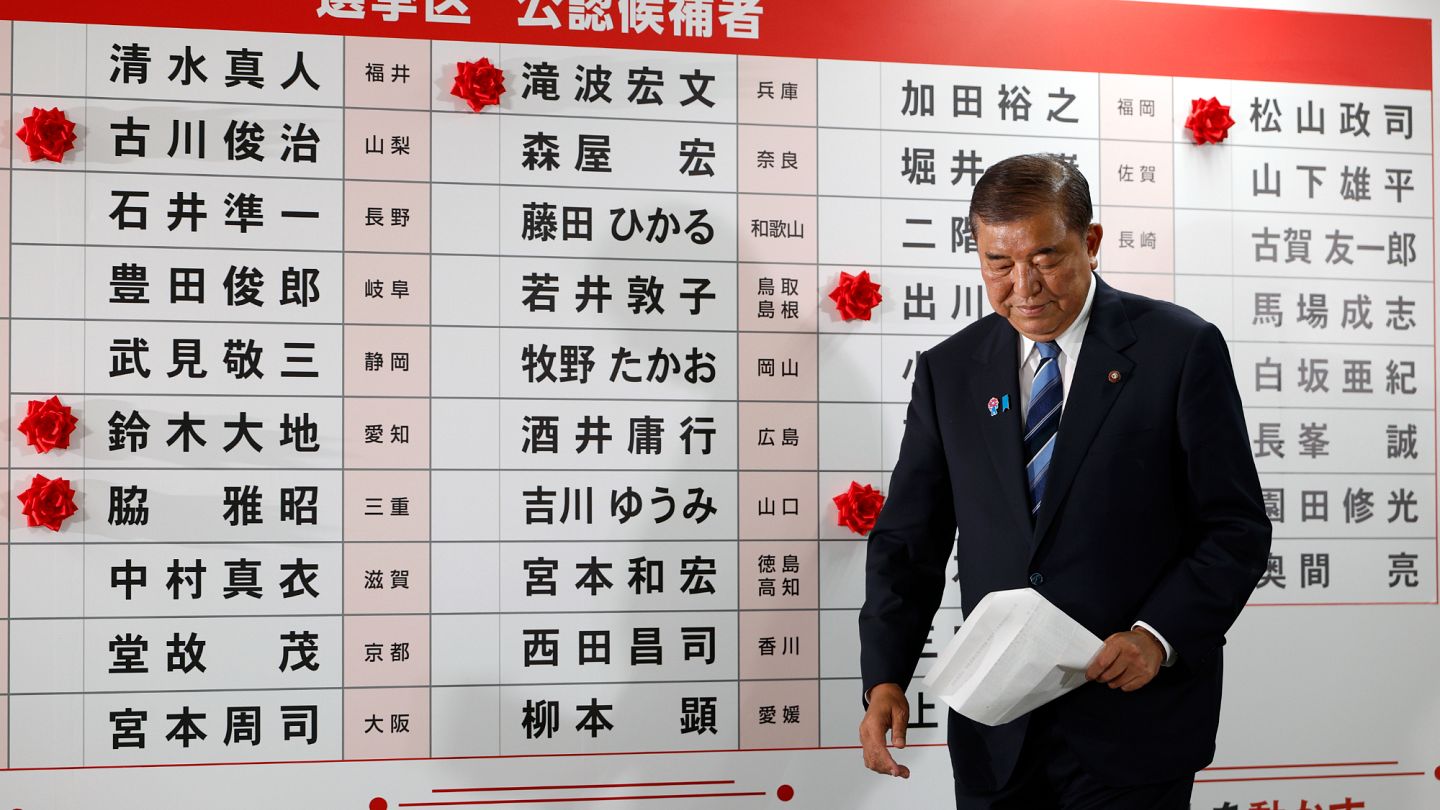Ishiba's coalition loses majority in Japan's upper house election
Ishiba said the coalition's poor showing was because his government’s measures to combat price increases had yet to reach many people.
Japanese Prime Minister Shigeru Ishiba’s ruling coalition failed on Monday to secure a majority in the country’s 248-seat upper house in a crucial parliamentary election, public broadcaster NHK reported. Ishiba’s Liberal Democratic Party (LDP) and its junior partner Komeito needed to win 50 seats in addition to the 76 they already held to maintain control. WIth only one seat still to be decided, the coalition had secured just 47. The result deals a blow to Ishiba’s government. The coalition is now a minority in both houses of Japanese parliament following its October lower house defeat.It is the first time the LDP has lost a majority in both houses of parliament since the party’s foundation in 1955. Despite the setback, Ishiba pledged to remain in office to avoid creating a political vacuum as Japan faces mounting challenges, including US tariff threats. However, he could face pressure from within his party to resign or seek a new coalition partner. “I will fulfil my responsibility as head of the No. 1 party and work for the country,” he said. The poor performance in the election will not immediately trigger a change of government because the upper house lacks the power to file a no-confidence motion. Soaring prices, lagging incomes and burdensome social security payments were the top issues for frustrated Japanese voters. S Stricter measures targeting foreign residences and visitors also emerged as a key issue, with a surging right-wing populist party leading the campaign. The eight main opposition groups, however, were too fractured to forge a common platform as a united front and gain voter support as a viable alternative.


